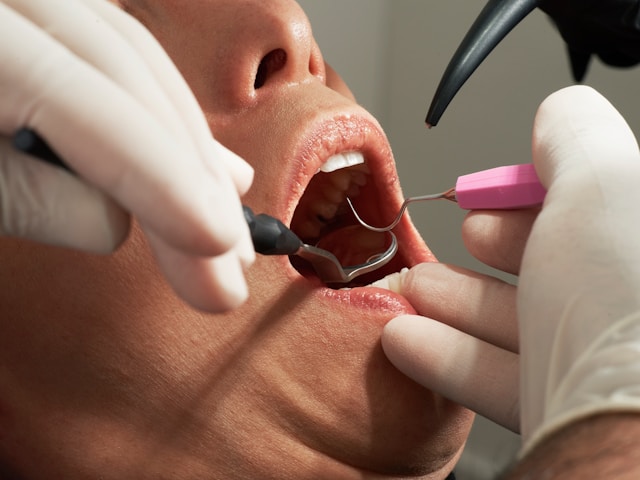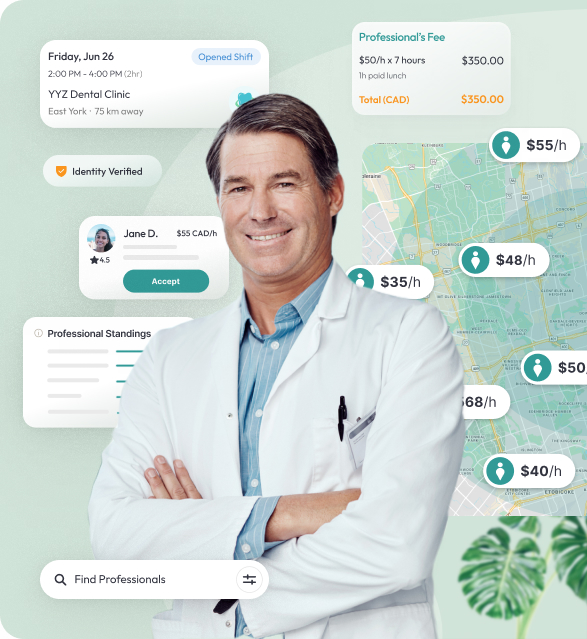How to Become a Dental Assistant? A Step-by-Step Guide to Kickstart Your Career
Dental assistants are a crucial part of Canada’s oral health industry. Numbering 26k to 29k, these healthcare practitioners help doctors/hygienists during different medical procedures. So, their responsibilities include preparing patients for dental exams, taking X-rays, educating them about oral hygiene, and keeping medical records. The dental assistant career is booming since there’s a shortage of dental assistants in Canada despite heavy salaries.
In April 2023, Canada lacked 5,000 dental assistants, while around 70% of dentists believe that this shortage has affected their practice. That’s why many youngsters are choosing the dental assistant career path right now. If you want to become a dental assistant, then read this blog to discover the seven fundamental steps to dental health excellence.

Step #1: Understand the Roles and Responsibilities
First of all, we need to understand the dental assistant job description. What is it that dental assistants do? Why do they make between $22 and $22 dollars an hour doing what they do?
Key Responsibilities of a Dental Assistant
As we explained in the introduction, a dental assistant possesses key skills and qualifications that make him an important part of the Canadian dental health industry. A dental assistant’s key responsibilities include the following:
- Preparing patients for dental health exams
- Sterilizing and maintaining dental instruments
- Taking dental X-rays and developing them
- Educating patients about oral health & hygiene
- Scheduling appointments and processing payments
Their job role also includes intra-oral tasks like applying fluoride, taking impressions, removing sutures (for certified dental assistants), etc., in all Canadian provinces except Quebec.
Skills Required for Excellence in Dental Assistance
If you are looking for dental assistant career opportunities, don’t forget to develop the skills that make you a great dental assistant. These skills will easily fatten up your paycheck and help you find work in more prestigious healthcare institutions in Canada:
- Administrative skills like keeping medical records and handling billing
- Communication skills that make you serve as a liaison between a dentist and a patient’s family
- Interpersonal skills that allow you to be on good terms with patients of different racial, ethnic, or religious backgrounds
- Attention to detail toward sterilizing instruments and meticulously keeping complicated patient records for safety & compliance
- Technical skills include knowledge of dental procedures, radiography, infection control practices, and others.
Step #2: Meet Educational Requirements
Let’s talk about the qualifications required for a dental assistant in Canada. You must attain the right educational degrees/diplomas to start your dental assistant career.
Types of Dental Assistant Programs Available
Basically, you’ll get two types of programs in Canada:
- Focused on chairside assisting, patient care, administrative tasks, sterilization techniques, basic dental processes, etc.
- Focused on additional training with continued education, intra-oral procedures (X-rays and fluoride treatment), and other comprehensive tasks
Degrees vs. Diplomas: Which Option’s Better
You may either get a degree or pursue a diploma to start your dental assistant career path in style! Diplomas are faster to attain and help students join the oral health workforce as certified dental assistants immediately. On the other hand, degrees are more time-consuming since they focus on teaching advanced practices. If you want a broader educational experience in dental health, then you should pursue a degree in this niche.
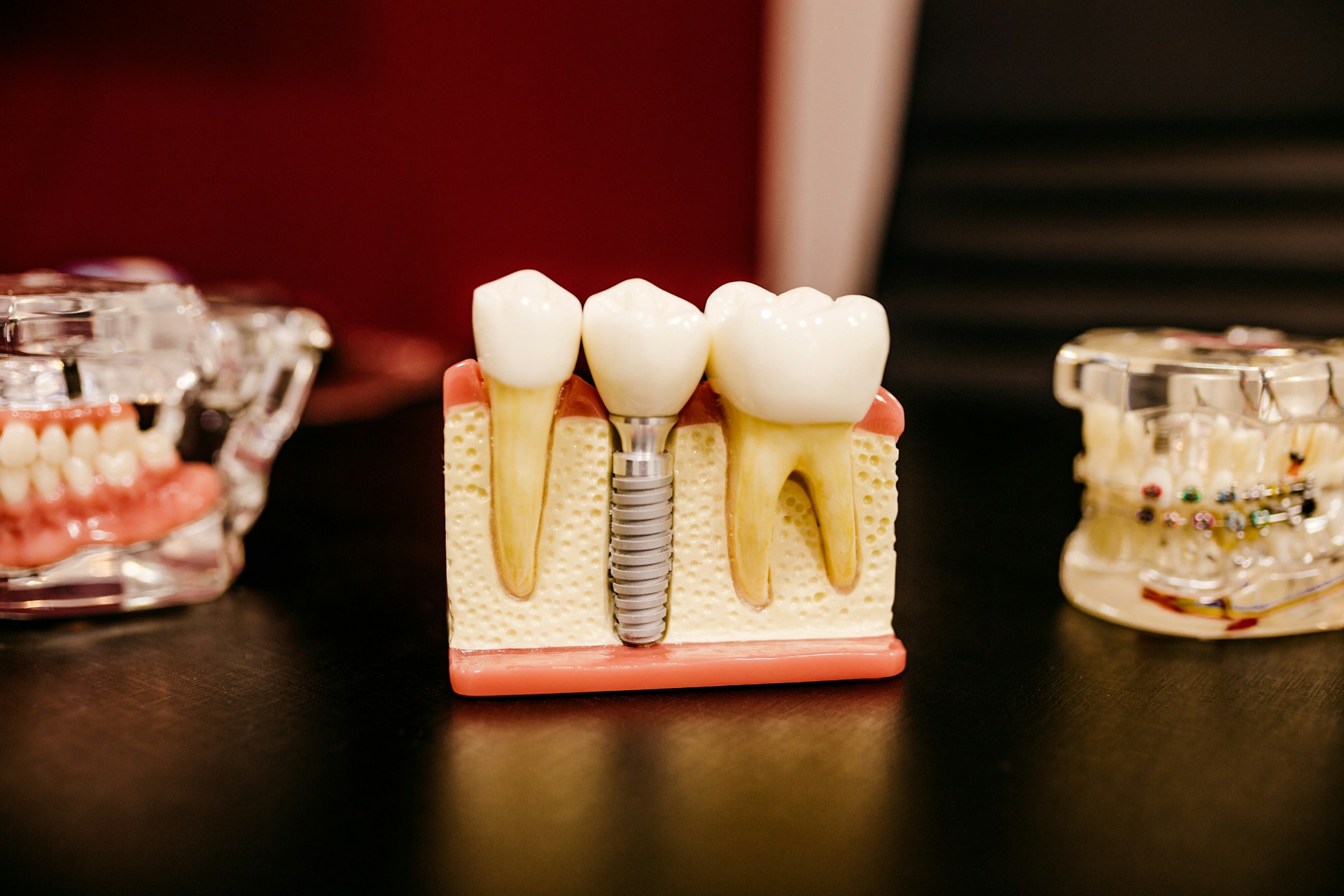
Online vs. In-Person Training: Which One to Choose?
Both online and in-person options have unique benefits. Online training is flexible, highly cost-effective, convenient for long-distance learning, and allows for self-paced training. But it lacks the kind of hands-on experiences you can get from traditional education. In-person classes also provide ample networking opportunities in a structured pedagogical environment.
Step #3: Complete a Dental Assistant Training Program
Why dental assistant is a good career? Hopefully, you now understand why. Next, we’ll discuss how to complete your dental assistant training program.
What to Expect in a Training Program?
The duration of your studies will depend on whether you’re enrolled in Level I or Level II. Also, your curriculum will include subjects like dental radiography, infection control, oral anatomy, & preventive procedures. You’ll get ample experience via clinical rotations or practicums to apply your skills and qualifications in real-world dental settings.
You should also expect to sit in a dental assistant exam to get your prestigious dental assistant certification. The National Dental Assisting Examining Board (NDAEB) conducts this exam. Also, you should focus on upskilling yourself for career advancement.
Core Subjects and Practical Skills Learned
You’ll learn these subjects while pursuing your dental assistant career path:
- Dental radiography
- Apt chairside assistance
- Oral anatomy and histology
- Digital imaging and patient assessment
- Restorative procedures (fillings and crowns)
Step #4: Gain Hands-On Experience
However, education isn’t enough if you wish to make it big in the oral health industry. You need internships, continuing education, and on-site experience to advance in your dental assistant career as well.
Clinical Training and Externship Opportunities
Dental assistant training programs will help you finish your clinical training easily. You may end up working with mannequins, student partners, real patients (eventually), and volunteers under guided supervision. Externships differ from internships in two ways:
- You typically shadow a professional and watch them work
- Externships can be as short as one day
So, your college/university may place you in dental offices and community clinics. This way, you will observe and participate in day-to-day operations that take place in a dental practice.
Importance of Real-World Practice
After gaining real-world experience, you’ll see these benefits:
- Applying theoretical knowledge in the real world
- Gaining confidence in your skills as a dental assistant
- Networking with dental professionals and other students
- Preparing for your dental health exam taken by the NDAEB
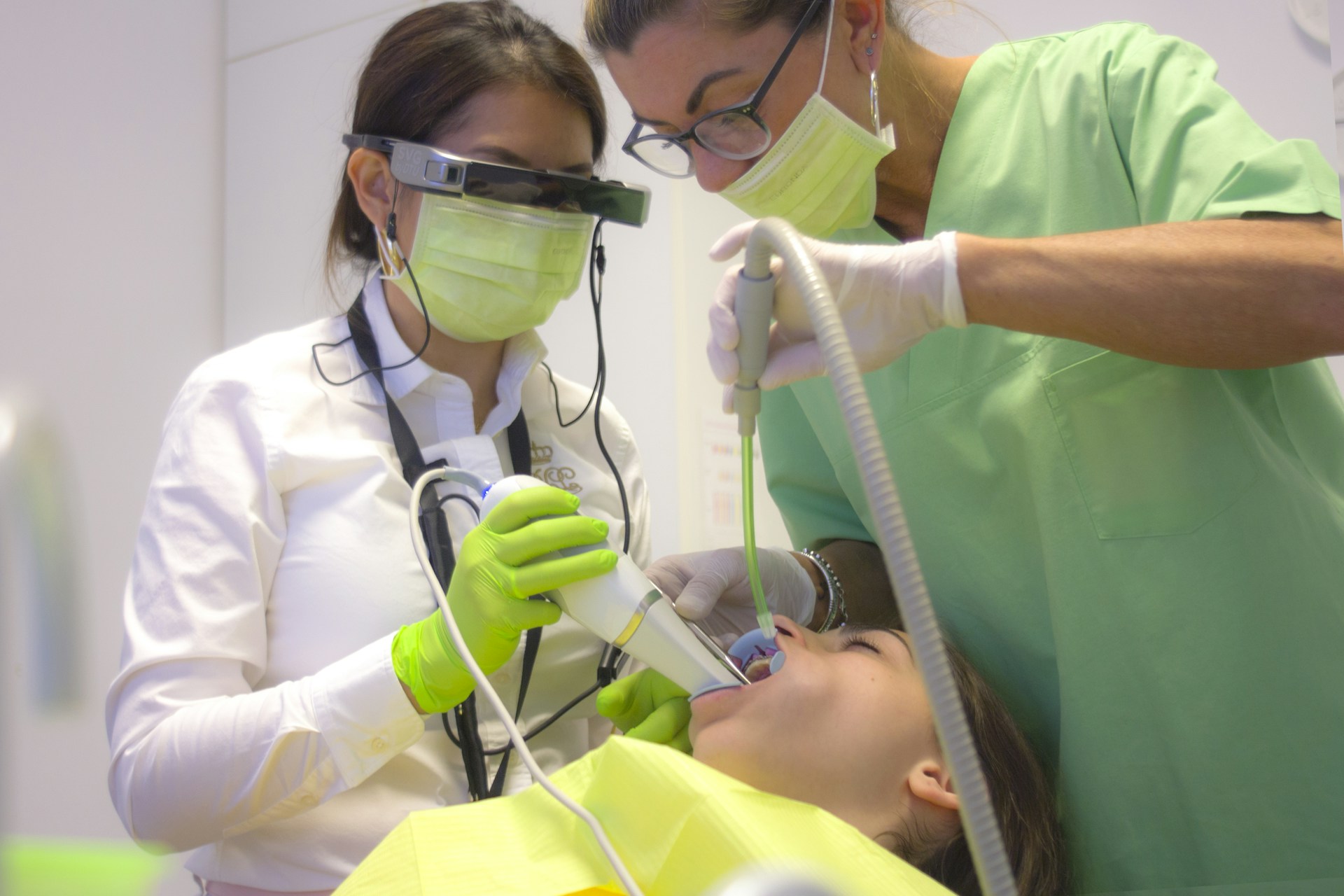
Step #5: Obtain the Necessary Certifications
Don’t forget about the licensing requirements when it comes to dental assistant jobs. Let’s look into the details of obtaining the right certifications.
Benefits of Becoming a Certified Dental Assistant (CDA)
We know that rural communities are hit hard by the dental assistant shortage. That’s why the average salary of certified dental assistants is $25.81 per hour right now. So, pursuing a dental assistant career means that you can easily land your dream job in Canada with a high potential for earning. Moreover, you’ll get access to incentives like:
- Paid holidays
- Sick leaves
- Health insurance
- Retirement plans
Certification Requirements by Province
The chart pasted below shows which skills and competencies a dental assistant should have based on their job location. We see that Quebec-based CDAs don’t need intra-oral expertise to enter this industry. Based on these qualifications, your NDAEB certificate requirements may change.
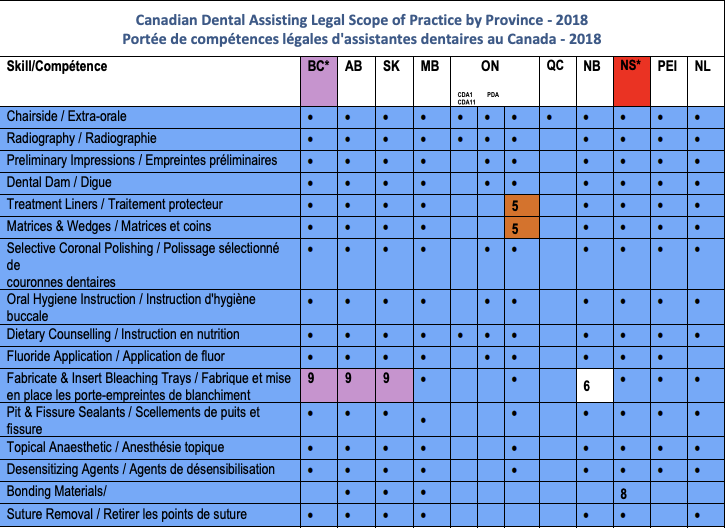
Step #6: Find Your First Job as a Dental Assistant
Even in the early days of 2023, the Canadian government was looking for dental health experts from other countries to fill the gaps caused by the lack of dental assistants in the country. Now, you should learn how to apply for dental assistant jobs in Canada.
How to Build a Strong Dental Assistant Resume?
Whether you’re a dental hygienist or dental assistant, you need to build a strong resume. Here are some ways to make your resume stand out from the crowd and impress employers:
- Read the dental assistant job description and incorporate relevant keywords into your resume.
- List your skills, qualifications, educational accomplishments, internships or externships, and dental assistant certification records.
- Quantify your achievements by using specific metrics to showcase your expertise, e.g., the number of procedures you’ve assisted or patient satisfaction rates.
- Use action verbs (e.g., “managed,” “assisted,” or “coordinated”), keep the resume very concise & to-the-point, showcase practical experience, and proofread it carefully.
Job Hunting Tips for Young Graduates
Are you curious about the latest dental assistant career opportunities in Canada? You need to learn how to hunt for jobs in this competitive market. Some tips include:
- Look for temp agencies that can put you in touch with qualified, background-checked employers who wish to hire dental assistant graduates.
- Attend industry events, use job platforms like LinkedIn to see who’s hiring, volunteer for industry exposure, prepare for interviews by highlighting your soft & technical skills, and stay up-to-date with dental health industry trends.
- Look for mentors in the industry for on-the-field guidance. Also, look for additional fair certifications that you can get in this industry.
Networking with Professional Organizations
Also, you should network with professional organizations in the oral health industry, such as:
- Canadian Dental Assistants Association (CDAA)
- Canadian Dental Association (CDA)
Provincial bodies:- Alberta Dental Assistants Association (ADAA)
- Saskatchewan Dental Assistants Association (SDAA)
- Ontario Dental Assistants Association (ODAA)
- New Brunswick Dental Assistants Association (NBDAA)
Step #7: What to Expect in Your First Years?
Well, you have now officially started your dental assistant career in Canada. You should look into what to expect in your first years in this field.
Building On-the-Job Experience
First of all, you should focus on gaining more experience in this industry. Your experience will determine your salary as you keep switching jobs and looking for better employers.
Common Challenges
Secondly, you should be familiar with the common challenges facing dental assistants:
- If you’ve immigrated to Canada, your credentials may lack recognition here.
- You may have to be proficient in French in some parts of Canada to land a good job.
- Understanding provincial dental assistant certification requirements may be confusing.
- Adapting to a new workplace culture isn’t always easy, and you can experience work-related stress in the early days of your job.
- Limited access to affordable and accredited dental assisting programs poses a barrier for newcomers seeking to gain the necessary qualifications.
Conclusion: Take the First Step Toward a Rewarding Career
In simple words, pursuing a career in the dental health industry requires understanding your job role, getting the right education, gaining practical experience, looking for internships, and applying for a dental assistant certification. That’s how you can become a dental assistant in Canada in 2025. A bright future in oral healthcare awaits you!
Frequently Asked Questions
How long to become a dental assistant for me?
It may take 1 to 2 years to complete a dental assistant program after finishing your secondary education.
Do I need a license to work as a dental assistant?
Yes, most provinces require dental assistants to be NDAEB-certified if they wish to practice.
What are the best resources for further learning?
The best resources for further learning include organizations like the Canadian Dental Assistants Association (CDAA), online courses, workshops, and continuing education programs offered by various dental schools and colleges.
